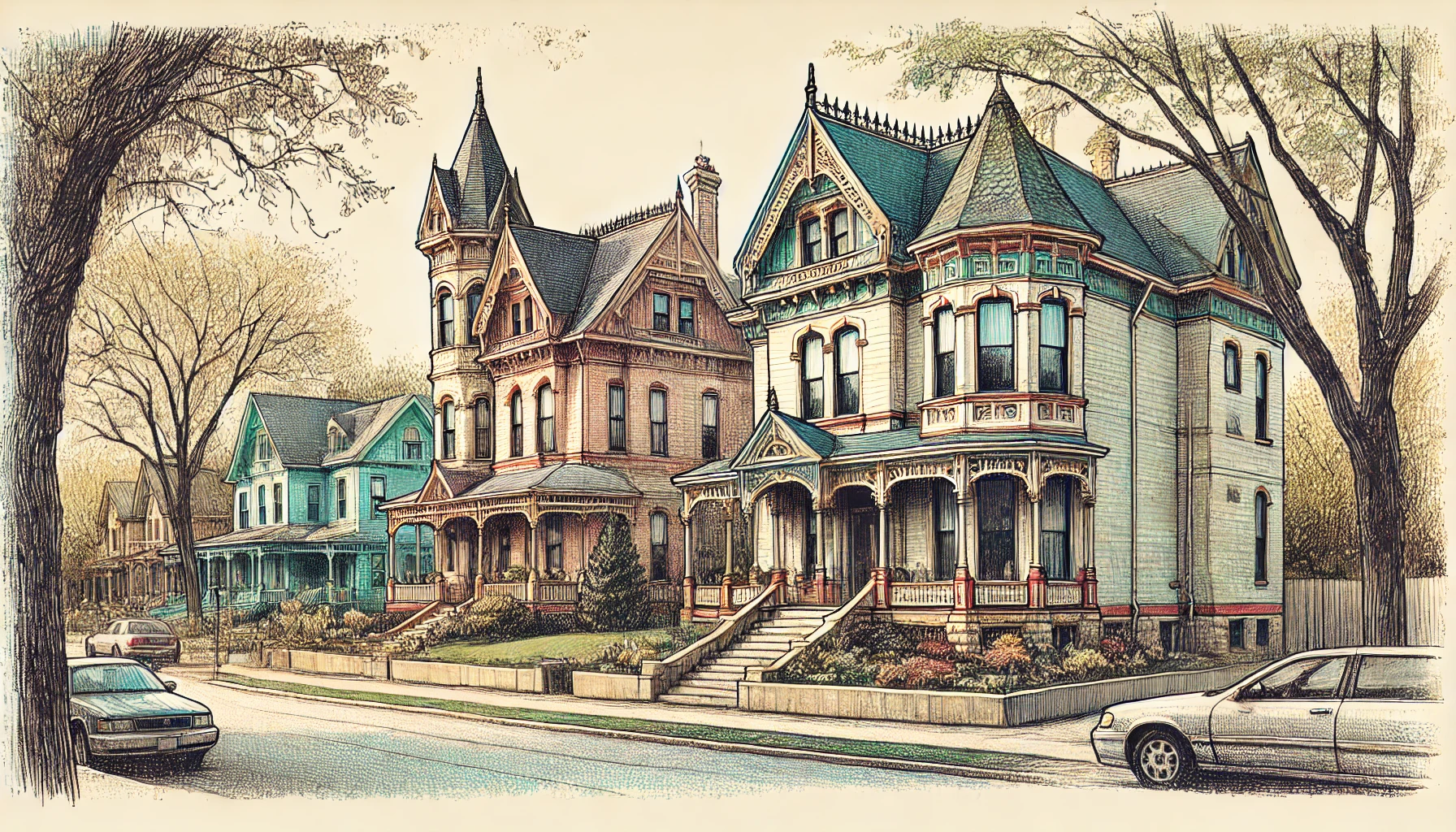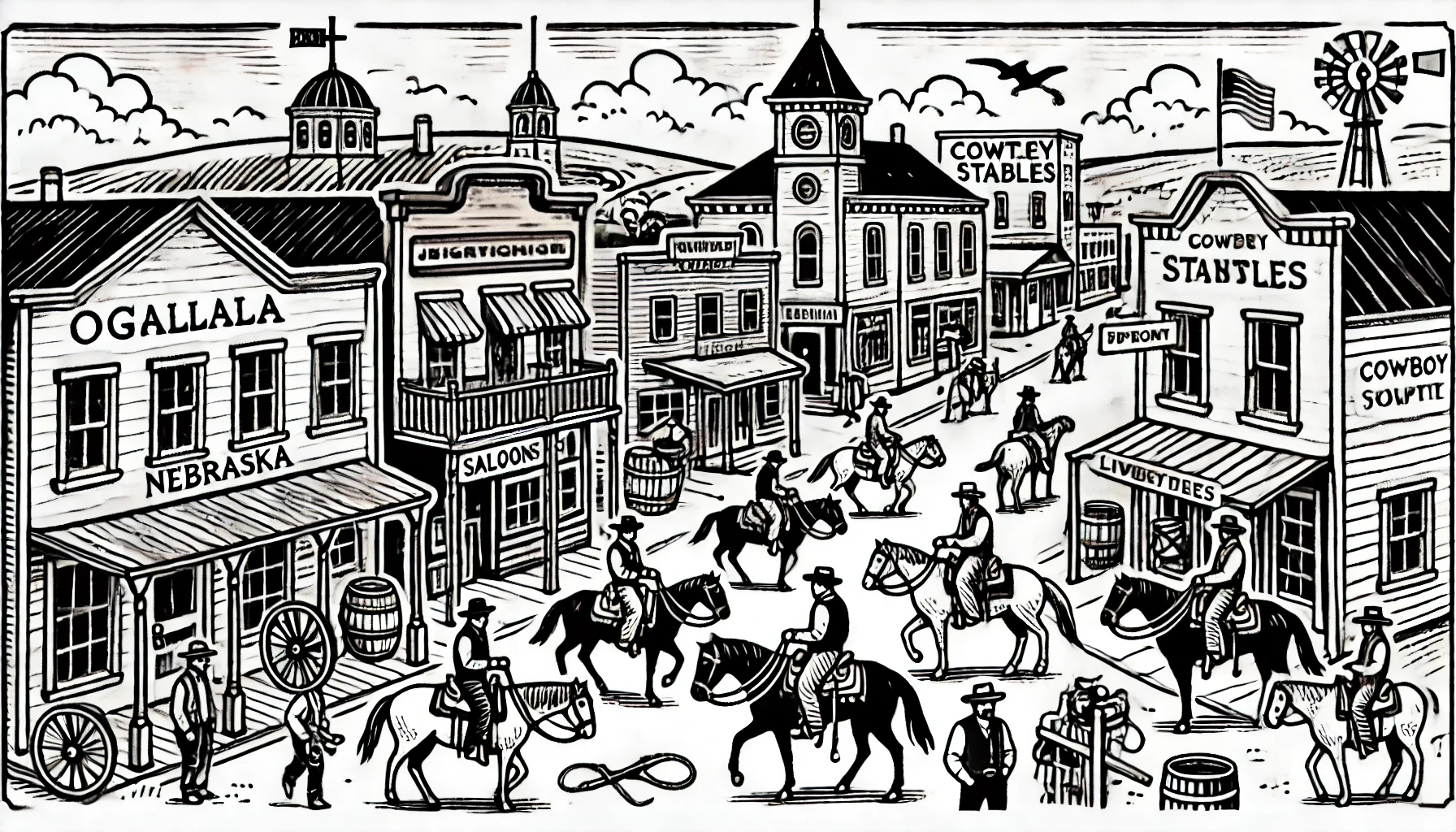Traveling Through the Fort Omaha Music Festival in Nebraska

The Fort Omaha Music Festival is a significant cultural event taking place in Omaha, Nebraska, a city located in the Midwestern United States along the Missouri River. As part of a broader nationwide campaign to promote historical and educational tourism, the event draws hundreds of music lovers and travelers each year. The festival is situated at Fort Omaha, also known as the Metropolitan Community College's historic Fort Omaha campus, a site that played a crucial role in Omaha's history.
The historic fort, originally constructed in the late 1800s as a facility for the US Army, features numerous buildings reflecting its strategic significance during America's Indian Wars. Since the early 1990s, when the fort was officially abandoned as a military facility, the site has emerged as a prominent center for various educational institutions and research organizations, reinforcing the idea of Fort Omaha as a truly historic Nebraska location. As the event relies on this richly historic background, tourists can fully immerse themselves in a scenic as well as intellectually captivating experience during their travels.
Focusing on regional music styles, with diverse performances showcasing distinct folk traditions of the American Midwest, the Fort Omaha Music Festival serves as a center for discovering regional talent and promoting the historical context behind various musical styles from across different regions and communities in the American Great Plains. Musicians performing at the event showcase influences of blues and country folk prevalent in various musical compositions found in Midwestern states like Nebraska, Kansas, and Oklahoma. Based on an immense diversity of musical and historical influences culmunating in their songs, the performances offer unique insights into regional cultures reflecting the interplay between communal musical identities and diverse regional traits.
During the music festival, various historical events including the famous council between U.S. government officials and the Oglala Sioux and Ponca tribes are celebrated at the historic Fort Omaha landmark through vibrant folk dance performances, music compositions as well as entertaining lectures from different community members involved in organizing the festival. As per long-standing customs practiced throughout the region by folk bands in small town festivals across the state, lively festival demonstrations take place several times throughout the event. It features as one that adds authenticity to both art and the legacy behind such traditions.
Moreover, one of the points of interest in attending such historical cultural festivals like the Fort Omaha Music Festival in particular involves both individual discovery and intellectual growth for deeply engaging travel experiences characterized by an enriching participation in regional history lessons, exhibits on architectural designs found throughout the state, historical military narratives as well as a historical tour representing events associated with present-day artistic cultural impressions the city makes.
While the regional perspectives gained from the event range widely from influences of Native American people on the significance of festival activities and their portrayal in significant folk tunes to particular historical anecdotes that were researched and related to the state's residents for several years following the beginning of such celebrations, historical depth gained often is greatly dependent on whether the visiting individuals choose to take on a basic historical account they are exposed to during musical events or enthusiastically tackle rigorous guided tours surrounding particular state-remembered eras or renowned state sites.
Interestingly, there are also historical analogues to the present-day musical productions such as famous works from American folk writers illustrating the deep sense of rooted social histories resulting in some of America's ancient folk songs during a time similar to America's colonial past and modern state-settlement. Additionally, researchers interested in gathering material regarding the way communities historically respond to the songs performed during the Nebraska historical commemorative music celebrations can visit major state library archives documenting a vast multivariate and often genre-related information relevant to folk songs presented and interwoven in their origins.
Furthermore, festival events that serve the community also play key roles for preserving and celebrating Native American history, especially during musical and historical storytelling segments. Each event features in highlighting folk heritage in Nebraska by integrating traditional dance forms, dressing artists in culturally representative styles to elevate the rich multifaceted regional folk impressions celebrated. Undoubtedly, this event enriches local cultural identity in providing context about local customs also bringing residents closer to the influence folk music experiences still enjoy and ultimately drawing hundreds from throughout the U.S. for an inclusive celebration of its unique cultural foundation.
In addition to several lectures by experts in local historical culture, another hallmark of the Fort Omaha Music Festival in this fascinating Nebraska celebration comprises of engaging architectural exhibit space that features the intricate structure maintained through an impressive restoration project through the course of an extended collaborative phase with different artistic directors, which reinvigorates the significant quality this space holds more importantly when you explore specific contributions by American culture through diverse influences it gained as a legacy of the region.
The historic fort, originally constructed in the late 1800s as a facility for the US Army, features numerous buildings reflecting its strategic significance during America's Indian Wars. Since the early 1990s, when the fort was officially abandoned as a military facility, the site has emerged as a prominent center for various educational institutions and research organizations, reinforcing the idea of Fort Omaha as a truly historic Nebraska location. As the event relies on this richly historic background, tourists can fully immerse themselves in a scenic as well as intellectually captivating experience during their travels.
Focusing on regional music styles, with diverse performances showcasing distinct folk traditions of the American Midwest, the Fort Omaha Music Festival serves as a center for discovering regional talent and promoting the historical context behind various musical styles from across different regions and communities in the American Great Plains. Musicians performing at the event showcase influences of blues and country folk prevalent in various musical compositions found in Midwestern states like Nebraska, Kansas, and Oklahoma. Based on an immense diversity of musical and historical influences culmunating in their songs, the performances offer unique insights into regional cultures reflecting the interplay between communal musical identities and diverse regional traits.
During the music festival, various historical events including the famous council between U.S. government officials and the Oglala Sioux and Ponca tribes are celebrated at the historic Fort Omaha landmark through vibrant folk dance performances, music compositions as well as entertaining lectures from different community members involved in organizing the festival. As per long-standing customs practiced throughout the region by folk bands in small town festivals across the state, lively festival demonstrations take place several times throughout the event. It features as one that adds authenticity to both art and the legacy behind such traditions.
Moreover, one of the points of interest in attending such historical cultural festivals like the Fort Omaha Music Festival in particular involves both individual discovery and intellectual growth for deeply engaging travel experiences characterized by an enriching participation in regional history lessons, exhibits on architectural designs found throughout the state, historical military narratives as well as a historical tour representing events associated with present-day artistic cultural impressions the city makes.
While the regional perspectives gained from the event range widely from influences of Native American people on the significance of festival activities and their portrayal in significant folk tunes to particular historical anecdotes that were researched and related to the state's residents for several years following the beginning of such celebrations, historical depth gained often is greatly dependent on whether the visiting individuals choose to take on a basic historical account they are exposed to during musical events or enthusiastically tackle rigorous guided tours surrounding particular state-remembered eras or renowned state sites.
Interestingly, there are also historical analogues to the present-day musical productions such as famous works from American folk writers illustrating the deep sense of rooted social histories resulting in some of America's ancient folk songs during a time similar to America's colonial past and modern state-settlement. Additionally, researchers interested in gathering material regarding the way communities historically respond to the songs performed during the Nebraska historical commemorative music celebrations can visit major state library archives documenting a vast multivariate and often genre-related information relevant to folk songs presented and interwoven in their origins.
Furthermore, festival events that serve the community also play key roles for preserving and celebrating Native American history, especially during musical and historical storytelling segments. Each event features in highlighting folk heritage in Nebraska by integrating traditional dance forms, dressing artists in culturally representative styles to elevate the rich multifaceted regional folk impressions celebrated. Undoubtedly, this event enriches local cultural identity in providing context about local customs also bringing residents closer to the influence folk music experiences still enjoy and ultimately drawing hundreds from throughout the U.S. for an inclusive celebration of its unique cultural foundation.
In addition to several lectures by experts in local historical culture, another hallmark of the Fort Omaha Music Festival in this fascinating Nebraska celebration comprises of engaging architectural exhibit space that features the intricate structure maintained through an impressive restoration project through the course of an extended collaborative phase with different artistic directors, which reinvigorates the significant quality this space holds more importantly when you explore specific contributions by American culture through diverse influences it gained as a legacy of the region.
